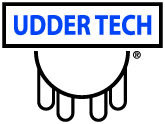Unfortunately, there are a number of unanswered questions in the law when it comes to these issues. Drones are an area where the law has failed to keep up with the technology. Given the number of drones now used in the U.S., it is almost certain case law will begin to address these types of issues.
For now, there are some basic principles landowners should be aware of.
Shooting down a drone flying overhead is not advised. This is likely the most popular question landowners have when drones are mentioned: “Can I legally shoot it down if it is flying over my property?” Under the current law, the answer is almost certainly no. There are a couple of considerations for landowners to keep in mind.
- Drones are regulated by the Federal Aviation Administration. Most drones are required to register with the Federal Aviation Administration and must follow regulations promulgated by the agency when in operation. Additionally, as one might imagine, there are very stiff criminal penalties in place for persons who shoot down a federally regulated aircraft.
Thus, there is at least a possibility a person shooting down a drone could face the same penalties as a person shooting down a commercial airliner.
- Drones flying overhead may not always be trespassing. Without question, landowners own the airspace above their property. However, with the invention of the airplane, the law has essentially accepted the idea there is sort of a “highway in the sky” where planes can fly over another person’s property without being sued for trespass. This, then, begs the question of exactly how high an object must be to be considered in that highway. There is no set law answering that question.
Most scholars point to a U.S. Supreme Court case from the 1940s involving an airplane. In that case, the court said trespass occurred when the plane entered into the “immediate reaches of the airspace next to the land” and “interferes substantially” with another’s use and enjoyment of his or her property. This does not give a clear answer to the question, and a landowner could be liable for shooting down a drone that was not actually trespassing depending on the circumstances.
- Persons shooting down drones could be liable for conversion or destruction of property. Although specific state laws differ on the elements of various crimes or torts, it is highly likely a person shooting down a drone could face either civil or criminal charges for doing so. Claims such as destruction of property or conversion would certainly seem to potentially fit this scenario.
Rather than shooting down drones flying overhead, there are a number of potential legal claims for a landowner to make against a drone operator.
1. Trespass. As previously discussed, if a drone is flying over a person’s property, it may well be committing trespass depending on the height at which it is being flown. Most states allow for both civil and criminal trespass claims, although the specific details differ by state. Both criminal penalties and civil damages may be available under the specific law in the state where the property is located.
2. Nuisance. A nuisance claim is viable when the defendant’s action substantially interferes with the use and enjoyment of the plaintiff’s property. It is not difficult to imagine a situation where a drone flying overhead could meet this definition and might allow for a successful legal nuisance claim to be made. Again, the specific elements of the claim depend on the applicable state law.
3. Invasion of privacy. Claims of “intrusion of seclusion” or “public disclosure of private facts” could potentially be available under the right circumstances. For example, if a drone were to fly over a person’s fenced backyard and take photographs of a woman sunbathing, this situation may well fit into one of these legal claims. It is more difficult to imagine a scenario where a drone flying over a cattle operation would capture an image that would fit these claims, however.
4. State statutes. Many states, including Texas, have recently passed statutes related to drones and privacy laws that allow for landowners to make claims against drone users if the statutes are violated.
5. Animal cruelty laws. Although there have been few (if any) cases involving claims of animal cruelty involving drones, depending on the state law definition of which animals may be subject to protections, harassing an animal with a drone could potentially fall under animal cruelty prohibitions in certain areas. This could be something to investigate if animals are harmed due to drones flying overhead.
6. Injunctive relief. An injunction is a legal remedy that requires a defendant to stop a certain act or behavior if certain conditions are met. If, for example, a drone flying overhead was harassing cattle, an injunction may be a way to put an end to the situation. ![]()

-
Tiffany Dowell Lashmet
- Assistant Professor and Extension Specialist – Agricultural Law
- Texas A&M AgriLife Extension Service
- Email Tiffany Dowell Lashmet







